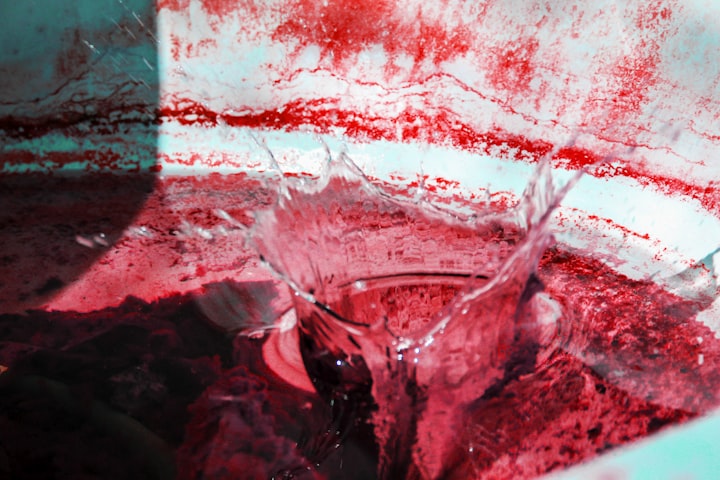Stolen Sisters
Seeking Justice for Aubrey and Carina Wilson

The small town of Keshena, Wisconsin was shaken to its core in October 2022 when the bodies of two young mothers, 21-year-old Aubrey Wilson and 19-year-old Carina Wilson, were pulled from a frozen lake on the Menominee Reservation. The two sisters, citizens of the Menominee Indian Tribe, had been reported missing for several weeks before the grim discovery.
What followed was a mishandled investigation riddled with missteps by authorities that sparked national outrage over the systemic injustices faced by missing and murdered Indigenous women and girls. Despite evidence of foul play, law enforcement seemed unwilling to devote the resources and urgency demanded by the case.
"From the moment we reported Aubrey and Carina missing, it felt like our pleas for help were falling on deaf ears," said Jolene Wilson, the sisters' aunt and a fierce advocate demanding accountability. "They were just brushed aside as a couple of missing Native girls who had probably taken off. But we knew in our hearts that was wrong."
Aubrey and Carina were inseparable, devoted single mothers who doted on Aubrey's 2-year-old son and Carina's infant daughter. On the night of September 27th, 2022, the young women made a spur-of-the-moment decision to drive from their home on the reservation into the small city of Green Bay, Wisconsin to do some shopping and have a rare night to themselves.
In a horrible twist of fate, that impulsive decision to have a brief reprieve from motherhood turned into an unimaginable nightmare. After being missing for nearly a month, the discovery of Aubrey and Carina's bodies in a frozen lake 60 miles from Green Bay made it clear they had been the victims of violent crimes.
But instead of a thorough and robust investigation by law enforcement, the case was plagued by missteps, shoddy work, and accusations that authorities showed little motivation to prioritize the murders of the two Native women.
"From losing crucial video evidence to witnesses being turned away during the initial missing persons probe, it seemed like utter incompetence," said Marie Wilbur, a former police officer and activist from the Lac du Flambeau Ojibwe tribe who helped draw national attention to the Wilson sisters' case. "And the lack of urgency stemmed from racism and the public perception that Missing and Murdered Indigenous Women aren't important."
For months, grieving family members like Jolene Wilson felt like screaming into an endless void as the search for suspects and quest for answers hit roadblock after roadblock. It wasn't until the case was brought into the national spotlight through protests and social media campaigns that Wisconsin officials seemed compelled to dedicate more resources.
In March 2023, five months after the murders, state investigators arrested and charged two male suspects - a boyfriend of one of the victims and his cousin - with the killings of Aubrey and Carina Wilson. The investigation alleged the two sisters had been carjacked at gunpoint, sexually assaulted, and ultimately thrown into the freezing waters where their bodies were recovered.
While the arrests brought some sense of closure for the Wilsons after their long ordeal, it also resurfaced outrage over the systemic failures that delayed justice from being served in the first place.
"My nieces deserved so much better than this," Jolene Wilson said, her voice trembling with emotion. "They deserved to have law enforcement value them from the first moment they were reported missing, not just when public pressure forced action to be taken."
For years, Native activists, families, and allies have demanded national reform and accountability around the disproportionate rates of violence targeted against Indigenous women and girls, with hundreds still missing or murdered each year across the United States.
Studies have shown that a large number of these cases go unsolved due to a lack of resources and coordination between law enforcement agencies operating in tribal, local, state, and federal jurisdictions. There are no standardized protocols for how authorities share data or prioritize cases of missing Native Americans.
"The Wilson sisters are the latest in a pattern stretching back for generations of our stolen sisters being ignored and forgotten by a system of institutionalized racism and apathy," said advocate Deborah Parker. "Aubrey and Carina were pursued as victims from the moment they went missing, just because they were Native women."
Following massive national protests and public outcry, the U.S. Department of Interior recently relaunched the Federal Indian Boarding School Initiative, providing $7 million to hire professional researchers and investigate the dozens of unmarked graves at former residential school sites across the country.
The Act, championed by Secretary Deb Haaland who is the first Native American to serve in a presidential cabinet, has been seen as an important step in pursuing long-denied truths and potential justice for cold cases involving Native victims.
For the Wilson family, it underscores the need to learn from past injustices while continuing to advocate for changes that will protect Indigenous women and girls from suffering fates similar to Aubrey and Carina.
"Having those two bright lights extinguished from our lives has left a void that can never be filled," Aunt Jolene said. "But we keep going, seeking reform and justice, so that other families don't know this all-consuming grief and trauma that comes from having loved ones go missing or murdered."
No matter the eventual outcome for the suspects now facing charges, the Wilson sisters' story has become a galvanizing force, symbolizing the need to value and defend the basic human rights of Native women and children.
As Marie Wilbur declared: "No more stealing of our sisters...no more turning a blind eye while they are made victims. The murders of Aubrey and Carina cannot be in vain."






Comments
There are no comments for this story
Be the first to respond and start the conversation.